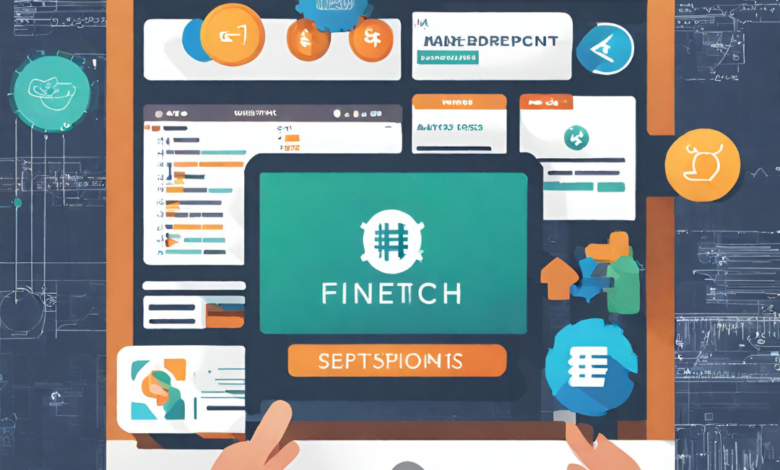Cybersecurity Challenges for Software Developers in the UK

In today’s digitally driven world, cybersecurity has emerged as a critical concern for businesses and individuals alike. For software developers in the UK, navigating the complex landscape of cybersecurity is both a challenge and a necessity. With increasing cyber threats, stringent regulations, and the evolving nature of technology, developers must stay ahead of potential vulnerabilities. This blog delves into the key cybersecurity challenges faced by software developers in the UK and offers insights on how to address them effectively.
The Rising Threat of Cyber Attacks
The frequency and sophistication of cyber attacks have surged in recent years. From ransomware to phishing, the variety of cyber threats is expanding, posing significant risks to software systems. Developers in the UK are particularly vulnerable due to the country’s advanced digital infrastructure and high-value targets. Protecting sensitive data and ensuring the integrity of software applications are paramount.
Types of Cyber Threats
- Malware: Malicious software designed to damage or disable computers. Malware can infiltrate systems through various means, including email attachments and malicious websites.
- Phishing: Deceptive attempts to obtain sensitive information by disguising as trustworthy entities. Phishing attacks often target employees within an organization.
- Ransomware: A type of malware that encrypts a victim’s files, demanding a ransom to restore access. This can cripple businesses, causing significant financial losses.
- Distributed Denial of Service (DDoS): Overloading a system with traffic to render it unusable. DDoS attacks can disrupt services and cause reputational damage.
Regulatory Compliance
In the UK, software developers must adhere to stringent cybersecurity regulations designed to protect data and privacy. The General Data Protection Regulation (GDPR) and the Network and Information Systems (NIS) Directive are two key frameworks that developers must navigate.
GDPR
The GDPR mandates strict data protection measures for organizations handling personal data. For software developers, this means implementing robust security protocols to safeguard user information. Non-compliance can result in hefty fines and legal repercussions.
NIS Directive
The NIS Directive focuses on the security of network and information systems. It requires businesses providing essential services to implement appropriate security measures and report significant incidents. Compliance with this directive is critical for software developers working with critical infrastructure.
The Complexity of Modern Software
Modern software development involves complex architectures, including cloud computing, microservices, and APIs. Each component presents unique security challenges, and ensuring the overall security of an application requires a comprehensive approach.
Cloud Security
As more businesses migrate to the cloud, ensuring the security of cloud-based applications is crucial. Developers must understand the shared responsibility model of cloud security, where both the service provider and the user share security responsibilities. Proper configuration and regular audits are essential to mitigate risks.
Securing APIs
APIs are integral to modern software, enabling communication between different systems. However, they also present potential entry points for attackers. Ensuring API security involves implementing strong authentication, encryption, and regular testing for vulnerabilities.
The Human Factor
Despite technological advancements, human error remains a significant cybersecurity risk. Developers must be vigilant in adopting best practices and fostering a security-first mindset.
Secure Coding Practices
Adhering to secure coding practices is fundamental to mitigating vulnerabilities. This includes regular code reviews, static code analysis, and following established security frameworks like OWASP (Open Web Application Security Project).
Continuous Training
Cybersecurity is an ever-evolving field. Regular training and awareness programs are essential to keep developers updated on the latest threats and mitigation techniques. Organizations should invest in continuous professional development to ensure their teams are equipped to handle emerging challenges.
Collaboration with Cybersecurity Experts
Given the complexity of cybersecurity, collaboration with experts can enhance a developer’s ability to secure software effectively. Working with cybersecurity professionals or a dedicated custom software development company can provide specialized knowledge and resources. These collaborations can help identify and address potential vulnerabilities early in the development process.
Implementing DevSecOps
DevSecOps is an approach that integrates security into every phase of the software development lifecycle. By embedding security practices within development and operations, developers can proactively identify and mitigate risks.
Benefits of DevSecOps
- Early Detection of Vulnerabilities: Security is considered from the outset, reducing the likelihood of vulnerabilities.
- Automated Security Testing: Integrating automated security tools in the CI/CD pipeline ensures continuous monitoring and rapid response to threats.
- Collaboration: Encourages a culture of collaboration between developers, operations, and security teams, fostering a holistic approach to cybersecurity.
The Role of Artificial Intelligence
Artificial Intelligence (AI) is becoming a powerful tool in the fight against cyber threats. AI-driven solutions can analyze vast amounts of data to detect anomalies and predict potential security breaches.
AI Applications in Cybersecurity
- Threat Detection: AI can identify patterns and anomalies indicative of a cyber attack, enabling faster response times.
- Vulnerability Management: AI tools can continuously scan for vulnerabilities, providing real-time insights and recommendations for remediation.
- Behavioral Analysis: AI can monitor user behavior to detect unusual activities that may indicate a security threat.
Conclusion
Cybersecurity is a critical concern for software developers in the UK, requiring a multifaceted approach to address the myriad challenges. From understanding and mitigating cyber threats to ensuring regulatory compliance and embracing modern security practices, developers must remain vigilant and proactive. Collaborating with cybersecurity experts and adopting methodologies like DevSecOps can significantly enhance security measures. As the landscape of cyber threats continues to evolve, staying informed and adaptable is key to safeguarding software systems and protecting sensitive data.
By prioritizing cybersecurity, software developers in the UK can not only protect their applications but also build trust with users and stakeholders. In an increasingly interconnected world, robust cybersecurity practices are essential for sustainable growth and resilience.



